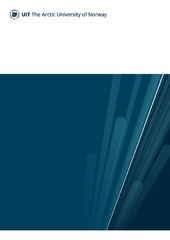| dc.contributor.advisor | Hartvigsen, Gunnar | |
| dc.contributor.author | Eilertsen, Thomas | |
| dc.date.accessioned | 2021-03-26T06:44:19Z | |
| dc.date.available | 2021-03-26T06:44:19Z | |
| dc.date.issued | 2021-03-01 | en |
| dc.description.abstract | Statistics from the World Health Organization (WHO) show clear indications that some groups in society have more significant struggles than others getting the recommended amount of physical activity. One of these groups is people with intellectual disabilities, which have different functioning resulting in different needs in terms of facilitation, accessibility, and usability. Many within this group have a sedentary lifestyle, often resulting in health problems such as obesity, diabetes, and cardiovascular disease. The purpose of this thesis is to explore the possible health benefits of a game-inspired and avatar-based exergame for people with intellectual disabilities. This thesis extends research into the exergame application Activity Game Avatar (AGA) started in 2019.
Because of the very nature of intellectual disabilities, collaboration with experts within the field (PA-ID group) and literature review is imperative to achieve the goals set for this thesis. Weekly meetings were held to have a constant flow of input, feedback, and discussion related to the AGA application development. Within the PA-ID group are experts on information technology, psychology, assistive technology, user-centered design, and intellectual disability.
While AGA is still in a prototype-phase, current results and feedback show great promise as a motivational tool that could help engage its users in physical activity. The COVID-19 pandemic made real-world testing difficult; the solution was an introduction of the application at Kvaløya VGS with special lecturers and supervisors. As with the PA-ID group, feedback is positive, with some elements that could be refined or improved in the future.
In this thesis, the AGA application has grown tremendously in functionality, content, and motivational mechanics. The application now has a broader and more complete environment with a depth more engaging for its users. It offers features like exercises, collectable rewards, personal progression, and entertainment in the form of an exergame for mobile devices.
Future aspects explored by not completed are online connectivity, health data collection, and more exercise features at a time where testing can be conducted more thoroughly. | en_US |
| dc.identifier.uri | https://hdl.handle.net/10037/20736 | |
| dc.language.iso | eng | en_US |
| dc.publisher | UiT Norges arktiske universitet | no |
| dc.publisher | UiT The Arctic University of Norway | en |
| dc.rights.holder | Copyright 2021 The Author(s) | |
| dc.rights.uri | https://creativecommons.org/licenses/by-nc-sa/4.0 | en_US |
| dc.rights | Attribution-NonCommercial-ShareAlike 4.0 International (CC BY-NC-SA 4.0) | en_US |
| dc.subject.courseID | INF-3981 | |
| dc.subject | VDP::Technology: 500::Information and communication technology: 550 | en_US |
| dc.subject | VDP::Teknologi: 500::Informasjons- og kommunikasjonsteknologi: 550 | en_US |
| dc.subject | VDP::Social science: 200::Psychology: 260::Cognitive psychology: 267 | en_US |
| dc.subject | VDP::Samfunnsvitenskap: 200::Psykologi: 260::Kognitiv psykologi: 267 | en_US |
| dc.subject | VDP::Medical disciplines: 700::Health sciences: 800::Other health science disciplines: 829 | en_US |
| dc.subject | VDP::Medisinske Fag: 700::Helsefag: 800::Andre helsefag: 829 | en_US |
| dc.title | Activity Game Avatar: A interactive exergame for people with intellectual disabilities. | en_US |
| dc.type | Mastergradsoppgave | nor |
| dc.type | Master thesis | eng |


 English
English norsk
norsk
